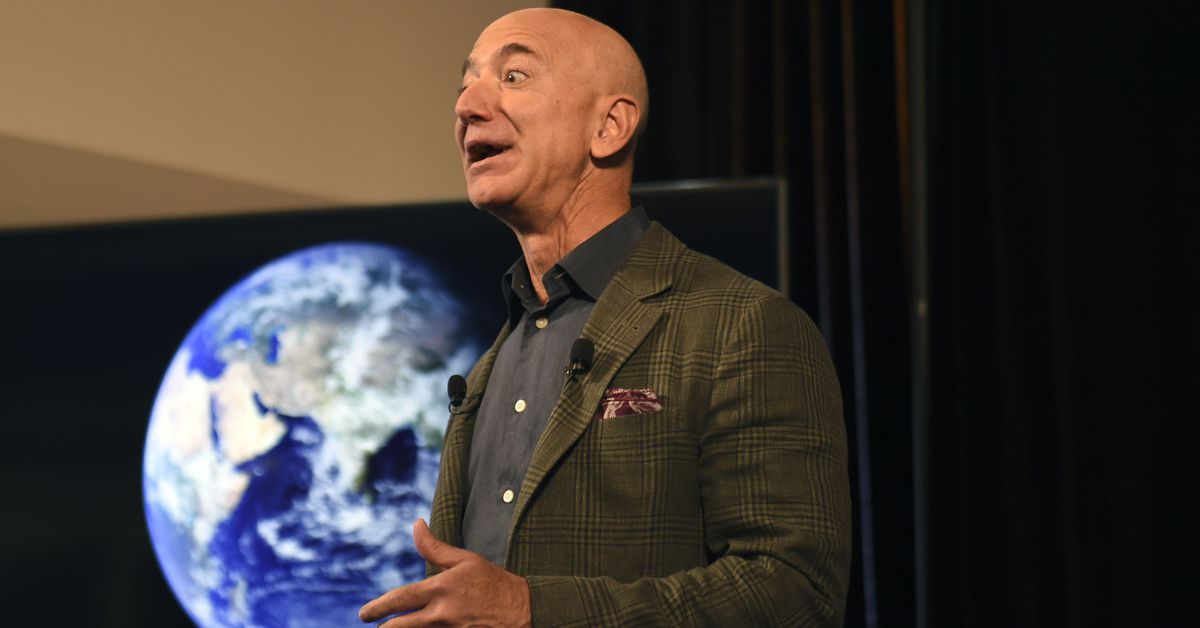
Jeff Bezos turned over a few more cards on Tuesday, revealing a bit more about his $10 billion commitment to address the globe’s climate crisis, one of the world’s most ambitious philanthropic projects.
Since he announced the Bezos Earth Fund a year ago, the Amazon founder has offered few details on how exactly the money would be distributed, and that ambiguity troubled some voices in the nonprofit sector who want to see more transparency from these megagifts. But now the Amazon founder is offering up more information on the leadership, structure, and timeline of the Earth Fund, such as that for the next decade it will award about $1 billion a year.
All of these inside-baseball decisions matter because the Earth Fund is slated to be by far the biggest player in climate philanthropy. Bezos’s decisions will reverberate around the climate sector, in part because of the effort’s size and in part because of Bezos’s profile. How Bezos, once again the wealthiest man in the world, executes on his biggest charitable commitment to date will be closely watched in the next phase of Bezos’s life after he steps down as Amazon CEO this year.
Bezos said on Tuesday that Andrew Steer, who for eight years has been the head of the World Resources Institute (WRI), will be the inaugural CEO of the Bezos Earth Fund. In November, Bezos and his girlfriend, Lauren Sanchez, awarded $100 million to the World Resources Institute as part of the initial wave of grants; by March, Bezos had plucked WRI’s CEO to lead his own organization.
Steer is generally well-regarded in climate circles and is particularly plugged in outside of the United States. Bezos’s early money has primarily gone to mainstream, large environmental organizations like WRI.
“The Earth Fund will invest in scientists, NGOs, activists, and the private sector to help drive new technologies, investments, policy change and behavior,” Steer wrote on Twitter. “We will emphasize social justice, as climate change disproportionately hurts poor and marginalized communities.”
That the Earth Fund would “invest” in “the private sector” suggested, experts say, that at least part of the Bezos Earth Fund’s structure would be through a limited liability company, since it is difficult for other philanthropic vehicles such as private foundations to make major investments in for-profit companies. The precise structure matters because an LLC, while more nimbly allowing for for-profit investments, is not required to file public tax documents that offer regular disclosures.
Bezos’s first round of grants this fall went entirely to nonprofits. But as Recode has reported, the Bezos Earth Fund has previously been linked to an LLC called Fellowship Ventures. Bezos aides have since the outset declined to share any information about the legal setup of the Earth Fund, and a Bezos Earth Fund representative declined to comment on the structure on Tuesday.
Unlike foundations, LLCs are also not required to disburse any amount of money at a regular clip. But Bezos made news on that front on Tuesday as well: The “goal” of Bezos’s $10 billion pledge, Steer said, would be to “spend it down” by 2030, meaning that the Amazon founder would be awarding about $1 billion a year (after which point, he could presumably load it up with more cash). Bezos previously had not shared any information on how quickly he planned to distribute that $10 billion, although he had said it was just $10 billion “to start.”
$1 billion a year would drastically increase US philanthropists’ commitment: In 2019, the last year on record, foundations gave $1.6 billion altogether. Given the stakes of the climate crisis, Bezos may feel he needs to move quickly — Steer called the next 10 years a “decisive decade.”







